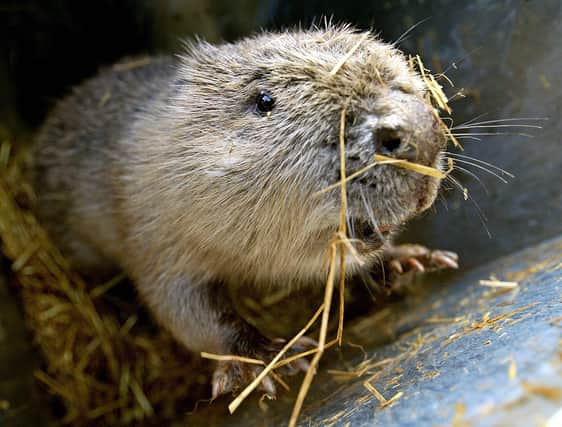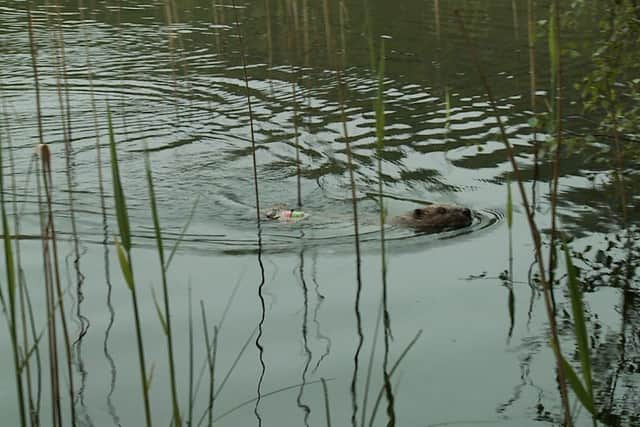SNP-Scottish Greens coalition could face its first big test over killing of beavers – Steve Micklewright


Make no mistake – this is a senior judge from one of our highest civil courts telling a government body that it has broken the very law for which it holds the lead responsibility.
Lady Carmichael’s judgment that NatureScot’s licences to kill beavers were unlawfully issued was hugely welcome. This big step forwards for Scottish wildlife followed Trees for Life’s crowdfunded judicial review earlier this year.
Advertisement
Hide AdAdvertisement
Hide AdOne of our concerns was that NatureScot was issuing beaver-killing licences with about as much due diligence as the UK government followed when it issued contracts for PPE in response to the pandemic.
The court’s ruling is an important victory for transparency and accountability. NatureScot must now fully and transparently record its reasons for issuing each and every beaver-killing licence – opening the agency up to scrutiny and potentially further legal challenges in the future.
In other words, no more rubber-stamping of official killings of a valuable, much-loved native animal that we’ve driven to extinction on these shores once before.
All of this offers hope for a new era that benefits nature, climate and farmers.


So far, so good. Yet disturbingly – in its statement responding to the judgment – NatureScot claimed to feel “vindicated”, simply because not all of our legal challenges were upheld. It is shocking that NatureScot should choose language like this given the global nature emergency and having itself allowed over 200 beavers to be shot rather than relocated – even as Scotland was preparing to host what could be the most important climate summit in our lifetimes.
The fact is that beavers are tremendous allies in tackling the climate and nature crises that are now outpacing us all. Beavers are renowned for building dams that can hold back floodwaters, purify water and do an amazing job of boosting biodiversity because of the nature-rich wetlands they create. These natural rewilders help create habitats that soak up carbon dioxide too. All of which are things we urgently need much more of rather than less.
That NatureScot’s statement was written by the agency’s “director of sustainable growth” makes matters positively Orwellian. Clearly sustainable growth of Scotland’s beaver population is not one of NatureScot’s priorities – especially when you consider how easy it has been to get a licence to kill a beaver compared with the marathon of bureaucracy and delay required to move beavers to a safe haven.
So has NatureScot learnt any lessons, and are its senior managers willing to embrace the court’s call for transparency and accountability? Will the agency rebuild its approach to beaver management in a positive way that would fully respect the law while benefiting nature, climate action and farmers?
Advertisement
Hide AdAdvertisement
Hide AdRegrettably, the signs are that the agency could be planning to take a minimalist approach to respecting the legal judgment – and digging in with a plan to persist in issuing licences to kill a protected species rather than backing the proven, beneficial, non-lethal alternative of relocation.
There have been press reports suggesting that further beaver killing will not even be suspended – indicating that existing licences will simply be amended, which in our view isn’t sufficient to satisfy the requirements of the judgment.
Fortunately however, it looks like the minister responsible for biodiversity – Scottish Greens MSP Lorna Slater – may take the court judgment more seriously than Scotland’s lead government agency tasked with protecting wildlife has done so far.
To date, the Scottish government has been refusing to allow beavers to be relocated to new areas of Scotland, even though NatureScot itself has identified over 100,000 hectares of habitat.
But a change in approach to beavers was included in the Scottish Greens cooperation agreement with the SNP. Mark Ruskell, the Greens’ environment spokesperson, has said in a statement that the legal judgment following our judicial review should ensure “beavers will be properly protected and, if needed, translocated across Scotland to areas where they have been missing for centuries, rather than slaughtered”.
The cooperation agreement recently signed by the Greens and the SNP includes a specific commitment to ensuring that lethal control of protected species is only licensed “where the conditions for doing so are demonstrably being met”.
As the judicial review verdict makes clear, detailed reasons for issuing each lethal control licence for beavers must be recorded – and to date NatureScot has failed to do this, meaning that all prior licences were issued unlawfully.
The cooperation agreement goes onto state that “more use will be made of translocation of beavers, including considering other locations in Scotland”.
Advertisement
Hide AdAdvertisement
Hide AdThe Greens’ statement is therefore very welcome, and it could be the first test of the viability of their working relationship with the SNP.
We know public opinion supports relocating rather than killing beavers, because polling by Survation has shown that 66 per cent of Scots back it. And we know that farmers – who have had no choice but to apply for a licence to lethally control beavers – would have much to gain from a more progressive approach. The big test for the minister is whether she can overcome the inertia and complacency – or perhaps sheer stubbornness – that appears to exist in NatureScot.
For NatureScot, the court’s ruling on its unlawful activities looks set to be a test too. Is the agency able to rise to the occasion by accepting that it has made serious mistakes and being willing to learn from them by committing to a more wildlife-friendly approach? Or – in order for it to truly serve Scottish nature – is this government agency instead in desperate need of major reform?
Steve Micklewright is chief executive of rewilding charity Trees for Life
A message from the Editor:
Thank you for reading this article. We're more reliant on your support than ever as the shift in consumer habits brought about by coronavirus impacts our advertisers.
If you haven't already, please consider supporting our trusted, fact-checked journalism by taking out a digital subscription.
Comments
Want to join the conversation? Please or to comment on this article.
